Unlock the secrets to peak performance with the power of hydration! Dive into 5 expert tips for athletes
Namaste, fitness enthusiasts! In the scorching Indian heat, or even in the cooler months when you're
pushing your limits in the gym, hydration is your secret weapon. Forget fancy supplements for a minute; water, good old pani, is the real MVP.
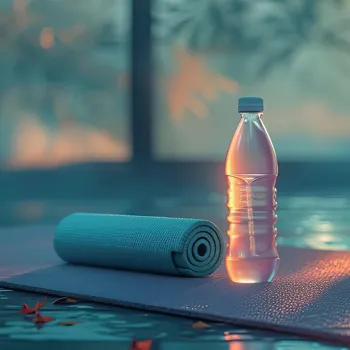
We're talking about performance enhancement, preventing injuries, and feeling fantastic all the way. This isn't just about quenching thirst; it's about optimising your body's engine for peak performance.
So, grab your water bottle and let's dive into why hydration is crucial and how you can master it. Think of your body like a finely tuned machine; water is the oil that keeps it running smoothly. Without enough, things start to grind, performance dips, and you risk damaging the engine.
Our bodies are mostly water, and that H2O is involved in pretty much every bodily function – from regulating temperature to transporting nutrients and lubricating joints. During exercise, we lose water through sweat, respiration, and increased metabolic activity.
If you don't replenish these fluids, you'll experience dehydration. The symptoms can range from mild – like a slight headache or feeling sluggish – to severe, like muscle cramps, dizziness, and even heatstroke.
Nobody wants to end their workout early nursing a headache or, worse, ending up in the hospital because of dehydration. Staying ahead of the game by drinking enough water is way easier than trying to recover once you're in the dehydration danger zone.
Proper hydration not only keeps you feeling fresh and energetic but also significantly reduces the risk of injuries. Muscles that are properly hydrated are more elastic and less prone to strains and tears.
Here are five super simple tips to ensure you're adequately hydrated before, during, and after your workouts:
Hydrate Before You Hit the Ground Running (or the Weights!):
Don't wait until you're thirsty to start drinking. Thirst is a signal that you're already a bit dehydrated. Aim to drink about 500ml of water 2-3 hours before you start working out. This gives your body time to absorb the fluids and get you primed for action.
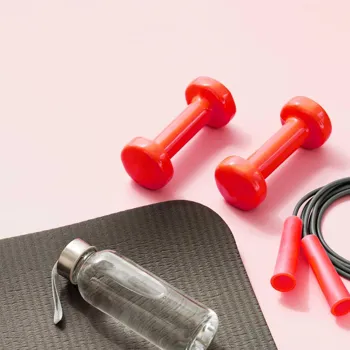
Think of it as fueling up your car before a long drive; you wouldn't wait until you're running on empty, would you? You can also sip on some lemon water or coconut water for added electrolytes, especially if you're prone to sweating a lot.
Avoid sugary drinks as they can lead to a sugar crash later on. Starting well-hydrated sets the stage for a successful and energetic workout. Even a small amount of pre-exercise hydration can make a noticeable difference in your endurance and overall comfort.
This ensures your heart doesn't have to work as hard, and your muscles receive the necessary oxygen and nutrients to perform at their best.
Sip Smart During Your Sweat Session:
Carry a water bottle with you and take regular sips throughout your workout. Don't chug the whole thing at once – small, frequent sips are more easily absorbed. Aim for about 150-300ml of water every 15-20 minutes, depending on the intensity of your workout and how much you're sweating.
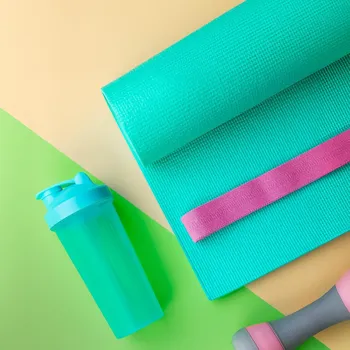
If you're doing a really intense workout that lasts longer than an hour, you might consider adding an electrolyte tablet or powder to your water. Electrolytes, like sodium and potassium, are lost through sweat and are essential for muscle function and nerve transmission.
Think of them as the spark plugs that keep your engine firing efficiently. Water alone might not be enough to replenish these lost electrolytes, especially in the sweltering Indian heat.
Remember that the goal is to maintain a steady state of hydration, not to overload your system with too much fluid at once. This prevents stomach cramps and allows your body to absorb the water effectively.
Refuel and Rehydrate After Your Workout:
Your body continues to lose fluids even after you've stopped exercising, so it's important to rehydrate after your workout. Aim to drink at least 500ml of water within an hour of finishing your workout.
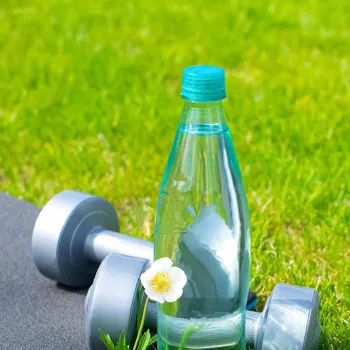
You can also include hydrating foods in your post-workout meal, like fruits and vegetables with high water content, such as watermelon, cucumber, or oranges. These not only provide hydration but also valuable vitamins and minerals to aid in recovery.
Consider a refreshing lassi or buttermilk, traditional Indian drinks known for their hydrating properties and digestive benefits. Remember, rehydration is not just about replacing the fluids you've lost but also restoring electrolyte balance and supporting muscle recovery.
Prioritising post-workout hydration helps prevent muscle soreness, fatigue, and dehydration-related headaches. Don't underestimate the importance of this final step in your hydration strategy.
Listen to Your Body's Signals:
Pay attention to your body's cues. If you feel thirsty, drink! If you're feeling dizzy or lightheaded, take a break and rehydrate. Everyone's hydration needs are different, depending on factors like body weight, activity level, and the climate.
There's no one-size-fits-all approach to hydration; it's about finding what works best for you. Some people sweat more than others, requiring a higher fluid intake. Pay close attention to the color of your urine; it should be pale yellow, indicating adequate hydration.
Dark yellow urine is a sign that you need to drink more water. Trust your instincts and adjust your fluid intake accordingly. Don't be afraid to experiment with different hydration strategies to find what keeps you feeling your best throughout your workouts.
Make Hydration a Habit:
Don't just focus on hydration around your workouts. Make it a part of your daily routine. Keep a water bottle with you throughout the day and sip on it regularly. Set reminders on your phone to drink water. Choose water over sugary drinks whenever possible.
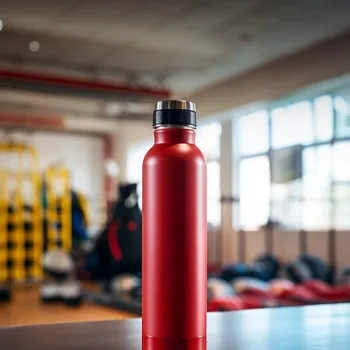
Making hydration a habit will ensure that you're always adequately hydrated, not just during your workouts. This will have a positive impact on your overall health and well-being, boosting your energy levels, improving your skin, and supporting various bodily functions.
Dehydration can sneak up on you, especially if you're busy or distracted. By making hydration a consistent practice, you can prevent dehydration and reap the many benefits of staying properly hydrated.
Remember, prevention is always better than cure, especially when it comes to your health and fitness.
So there you have it! Five simple yet effective tips to stay hydrated and maximise your workouts. Remember, pani is your friend, your performance enhancer, and your shield against the heat.
Now go forth, work up a sweat, and conquer your fitness goals – all while staying hydrated like a champ! Jai Hind!
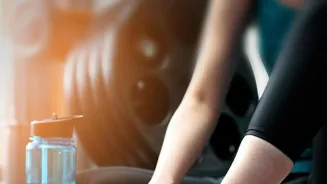












![[WATCH] T20 World Cup 2026: Gautam Gambhir hosts dinner for Team India players ahead of Namibia clash](https://g-mob.glance-cdn.com/public/fc/image/7gXS1xdhs5Q0.webp)


